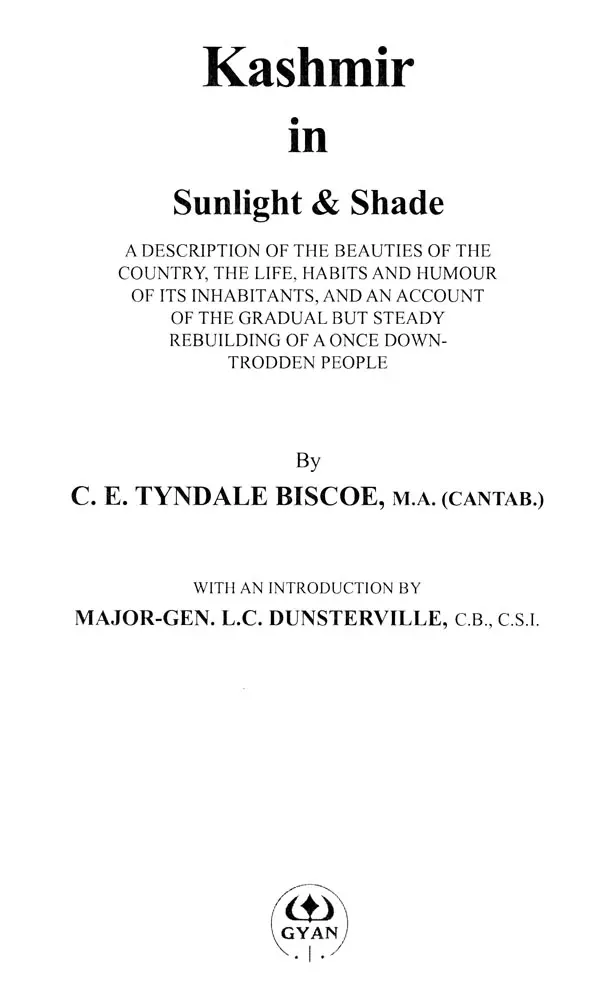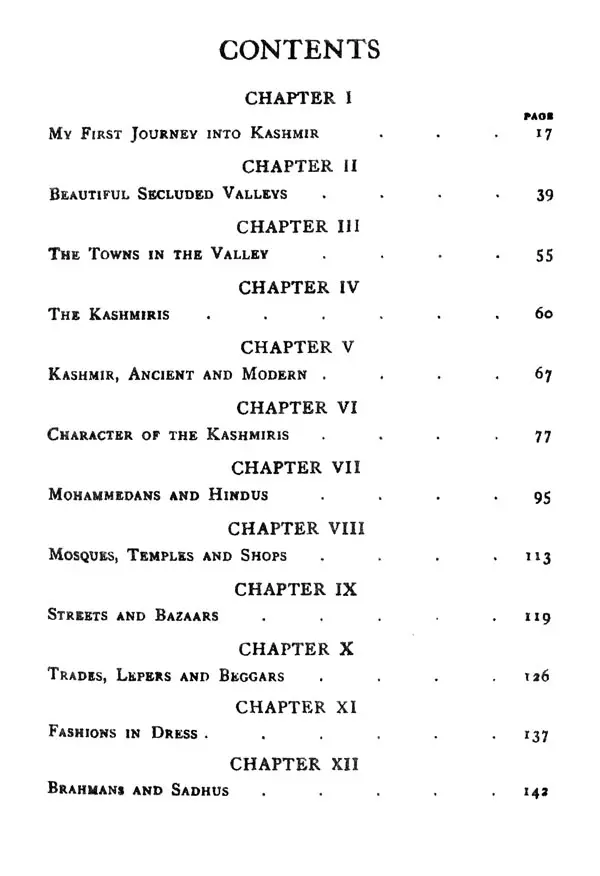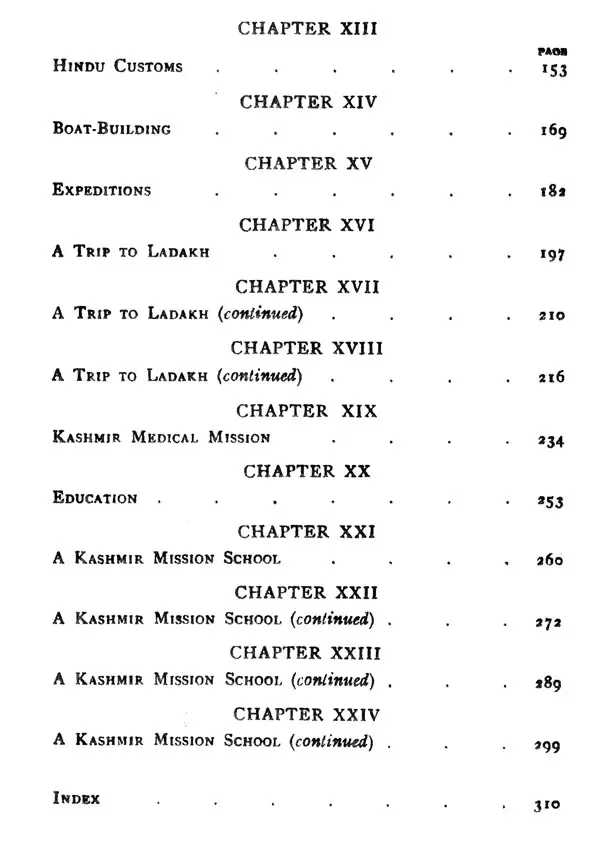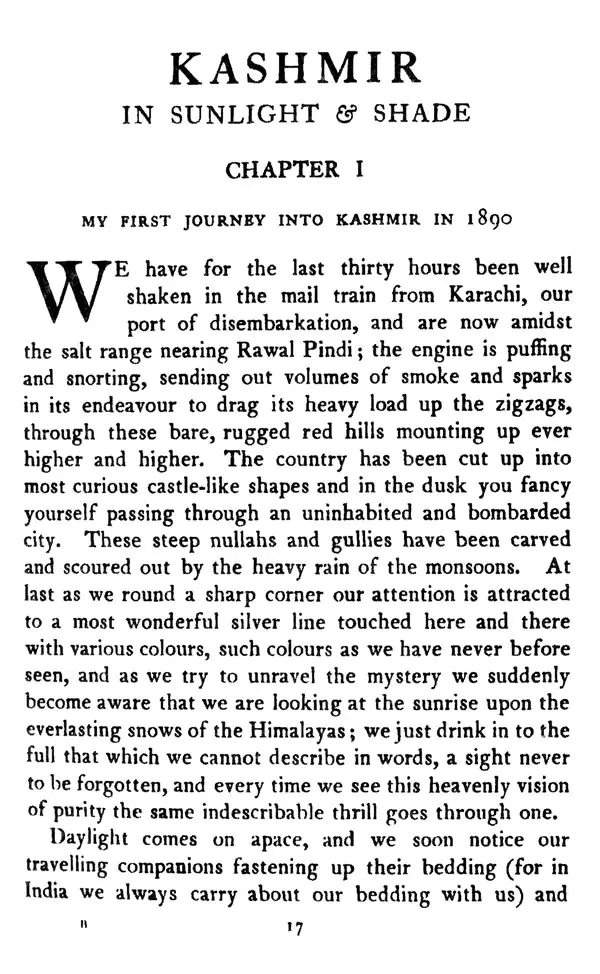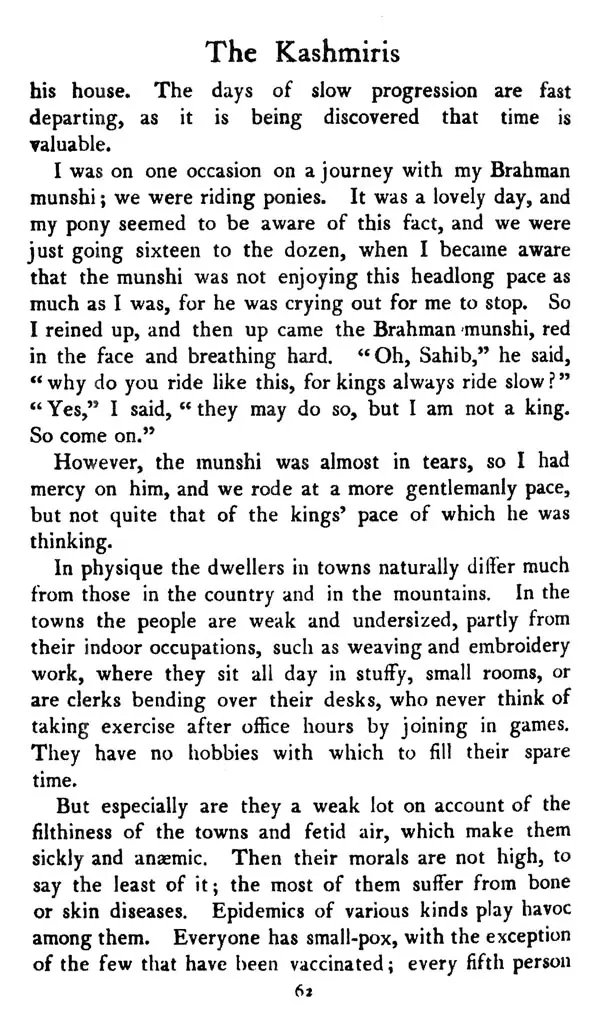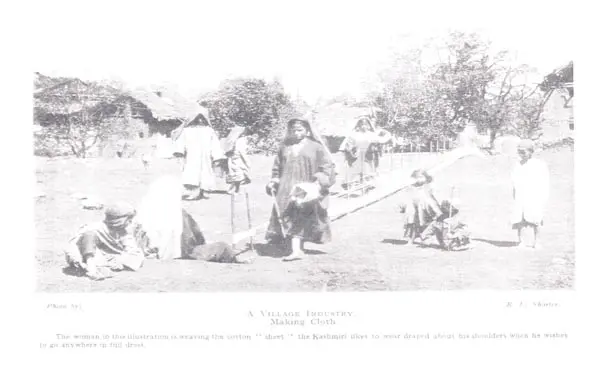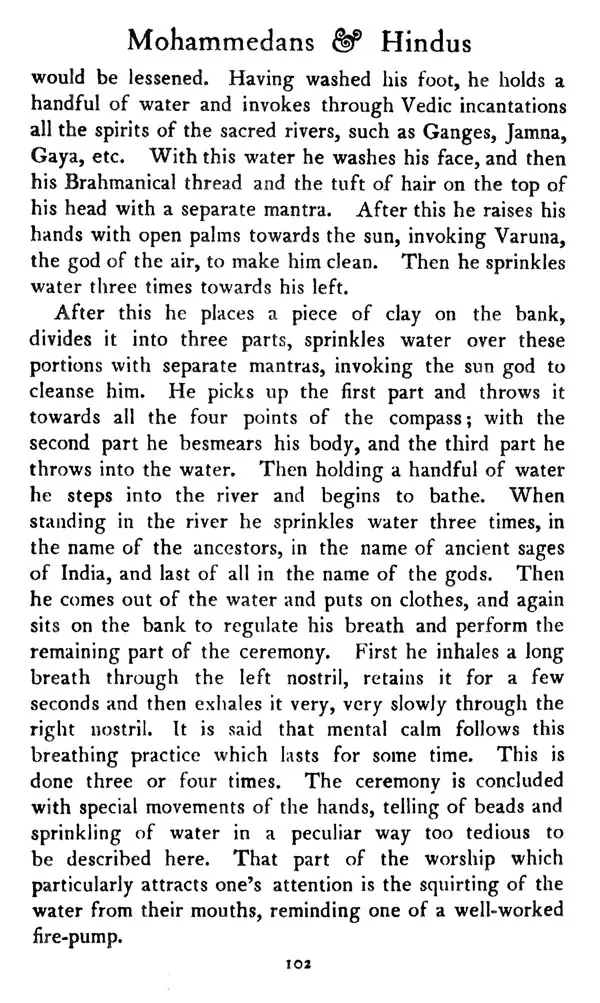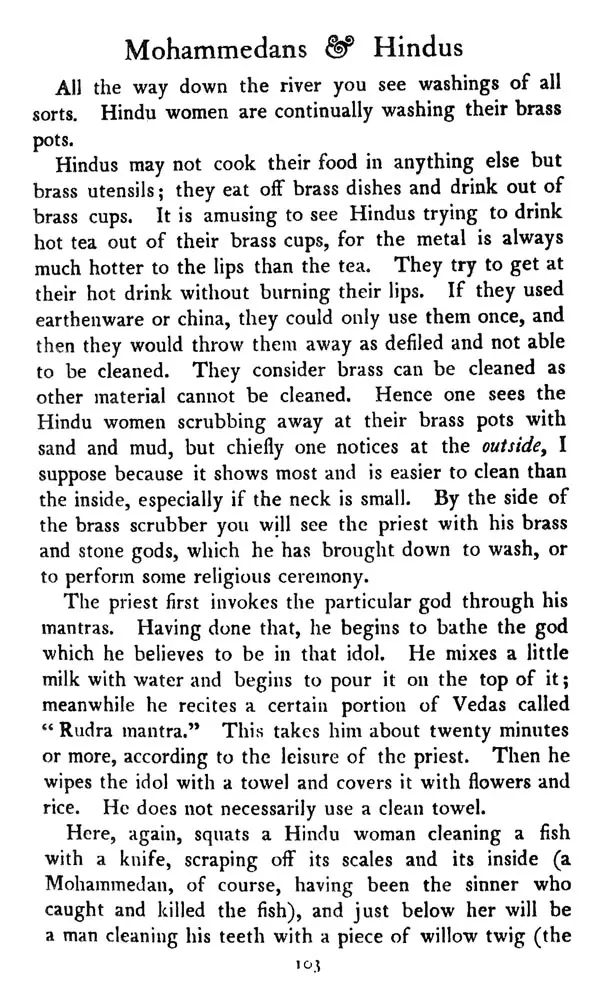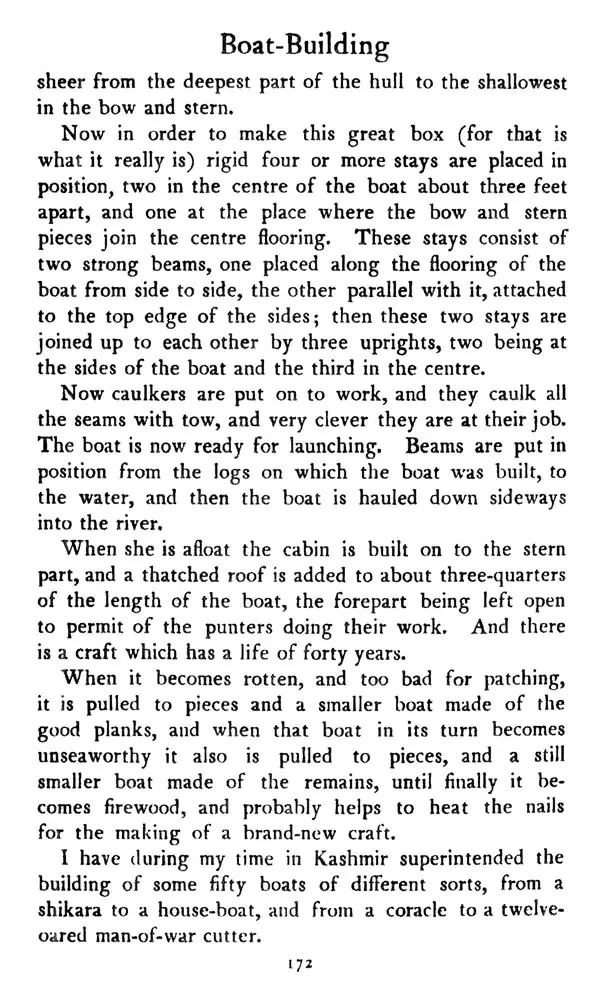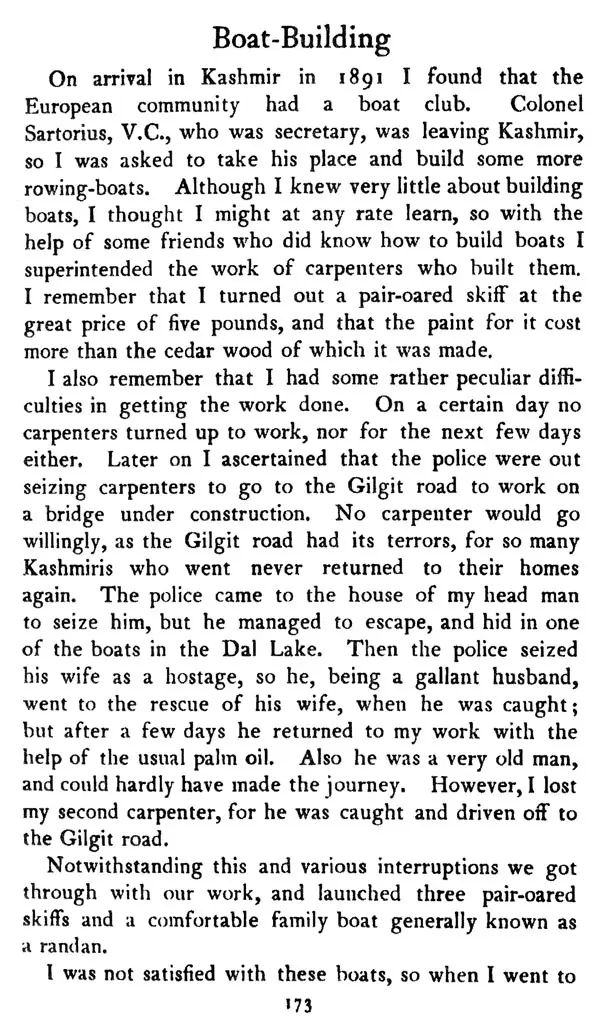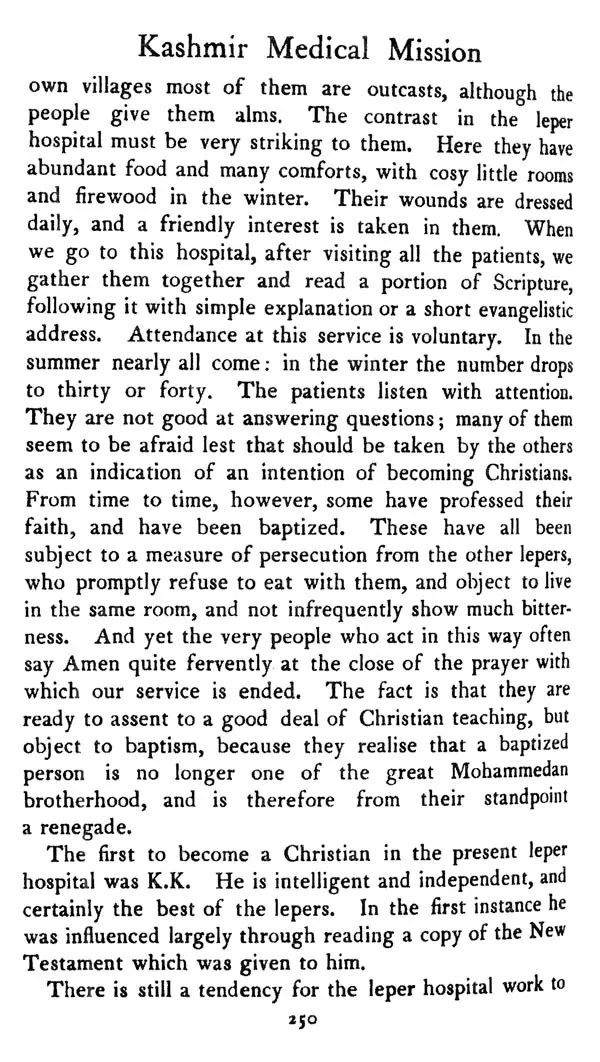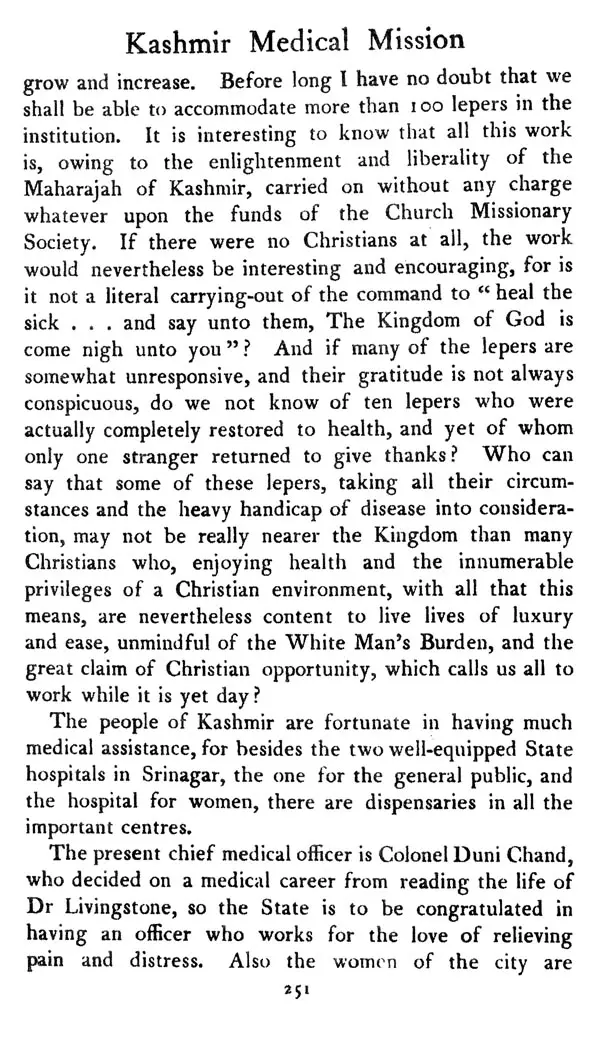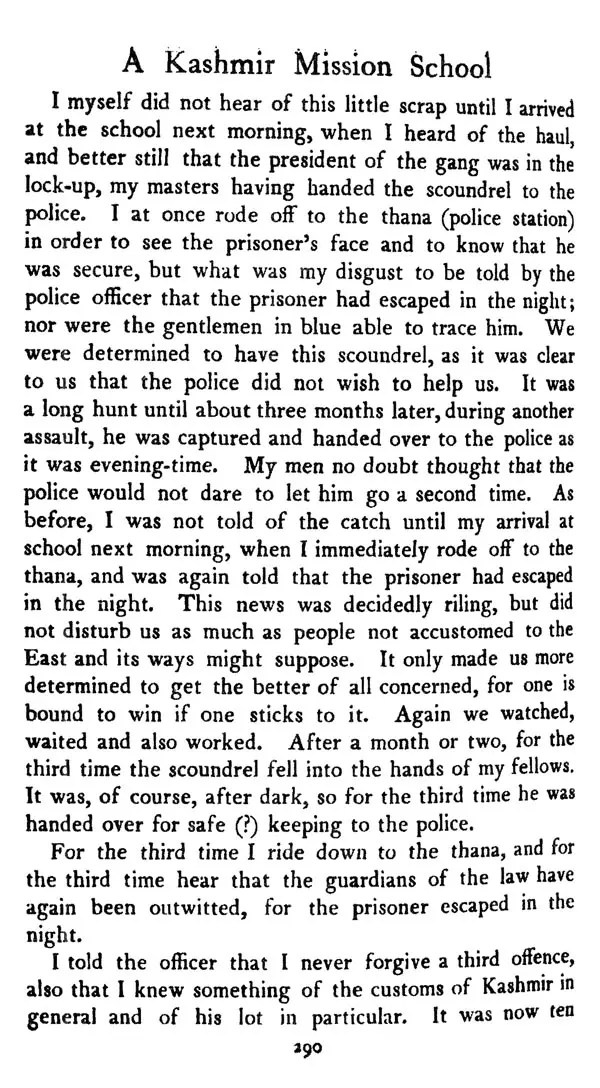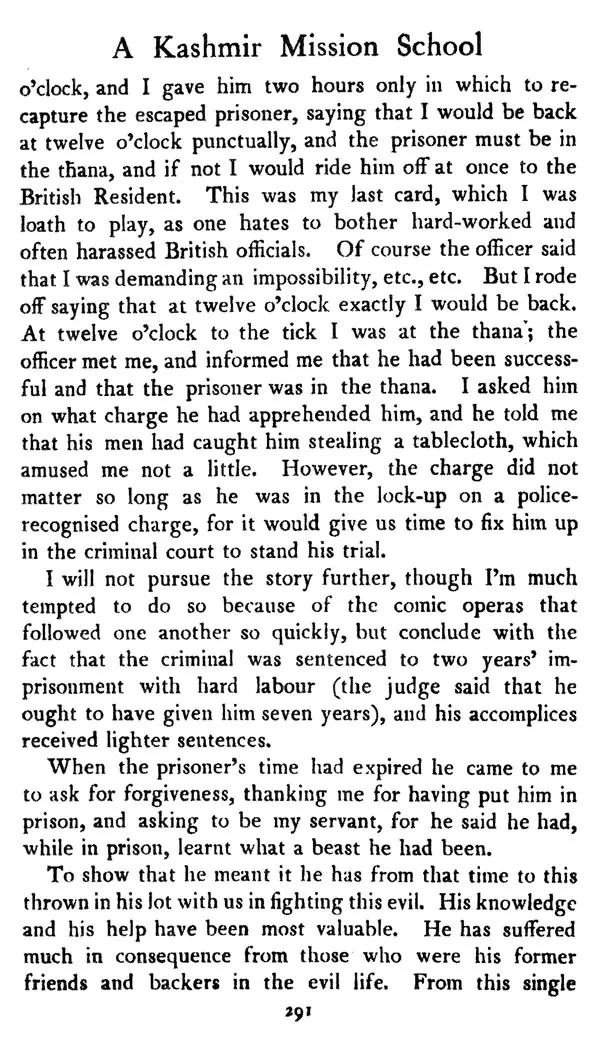
Kashmir in Sunlight & Shade
Book Specification
| Item Code: | UBF013 |
| Author: | C.E. Tyndale Biscoe |
| Publisher: | Gyan Publishing House, New Delhi |
| Language: | English |
| Edition: | 2022 |
| ISBN: | 9788121267106 |
| Pages: | 314 (Throughout B/w Illustrations) |
| Cover: | HARDCOVER |
| Other Details | 9.00 X 6.00 inch |
| Weight | 510 gm |
Book Description
The book gives a detail account of the author's view of Kashmir during his various visits to the place. He traveled all along the Kashmir valley and studied the life, habits and humour of its inhabitants, the beauty of the place and gave a brief description of the steady building of the People of Kashmir.
Cecil Earle Tyndale-Biscoe (1863-1949) was a British missionary and educationist, who worked in Kashmir where he established the Tyndale Biscoe School. He was born with the family name Biscoe. It was changed to Tyndale-Biscoe in 1883. He was educated at Bradfield College, and then Jesus College, Cambridge. At university he coxed the winning Cambridge crew in the 1884 Boat Race. In 1885 he coxed the winning Jesus College crew in the Grand Challenge Cup at Henley Royal Regatta. After being awarded a BA, he was ordained as a priest of the Church of England. After a short time working in London's East End, in 1890 Tyndale-Biscoe was appointed to a missionary school in Kashmir by the Church Missionary Society. By his later years, Tyndale-Biscoe had founded six schools with 1,800 students. In 1912 he received the Kaisar-l-Hind Medal, and an additional bar in 1929.
AN intimate friendship of many years may perhaps give me authority to express my admiration for the author of the present volume as a man and as a worker. His reluctance to undertake the task, the outcome of natural modesty, was with difficulty overcome, and I gladly seized the opportunity which was offered to me, of prefacing his lively account of Kashmir and its people with a few words which may perhaps be inadequate, but at any rate are actuated by sincere feelings of the deepest regard and highest admiration.
My natural tendency is to employ the space at my disposal in a eulogy of the author and his methods, but I know him well enough to feel that he would wish to be spared my superlatives, and I will leave it to the readers to express their own feelings. Having, however, known him, and the land in which he works, for so many years, and having had many first-hand opportunities of admiring his system, I must allow myself just a few words to introduce this apostle of cheerful and happy Christianity to those of the public who may not know him.
"In all things be men" sums up the fundamental idea in his teaching of Christianity, for true manliness entails virtue and rejects vice.
A born optimist, who regards dangers and difficulties as so many hurdles to give the racer the pleasure of leaping, a strong, forceful character with unshakable ideals and an unswerving determination to move without hesitation towards those ideals, a striver with a strong sense of humour and good sportmanship, and an indomit- able courage, both moral and physical; such are briefly the traits that have enabled this indefatigable missionary to realise the remarkable success that has attended his lifelong efforts.
Although it is not the case that a large proportion of his pupils have definitely decided to accept Christ, it is nevertheless beyond doubt that the majority of his staff and boys leave the school having learnt to lead lives more nearly following the teaching of Christ than those of many professing Christians.
As an instance of this I give the following example which I have not hitherto told to Mr Tyndale Biscoe. I was walking with a rather corpulent companion in Kashmir some years ago when we came to a small stream about ten yards across and about two feet deep. I had on rough shooting boots and putties, and I do not mind getting my feet wet, so I crossed without further ado. My friend, however, disliked wet boots and looked about for some way out of the dilemma. A rather frail-looking Kashmiri arrived at this juncture, and my heavy friend suggested in rather rough language that he should act as a beast of burden and convey his bulky form over the water. Without hesitation the Kashmiri obeyed the request, crouching before the heavy gentleman to enable the latter to place himself comfortably on his shoulders. With legs rather bending beneath his burden the docile carrier crossed the stream and placed my companion dry-shod on the opposite bank.
Book's Contents and Sample Pages
